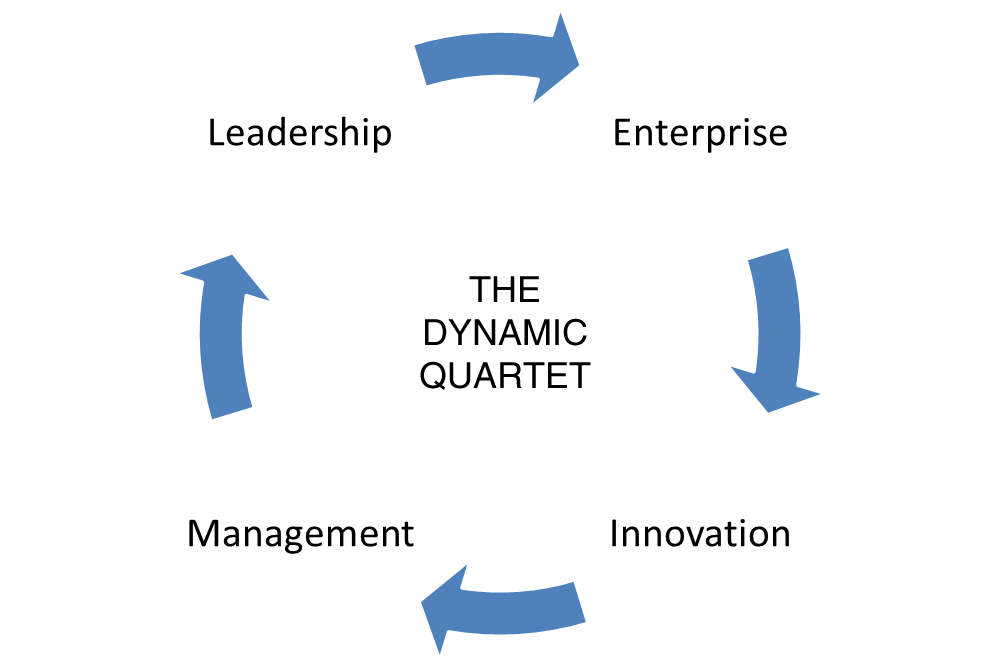What we do DELIVERING SUCCESS: THE DYNAMIC QUARTET
From the business start-up to the multinational-corporation or public sector organisation, success in achieving your true objectives rests on four essential processes: Leadership, Enterprise, Innovation, and Management. This Dynamic Quartet is the key to success in any purposeful endeavour. Our mission is to enable you to understand the true nature and contribution of each process in the Quartet and develop your skills in applying that knowledge to your organisation. Our purpose is delivering success.

Traditionally, leadership for example has been thought of as an attribute possessed by 'the leader'. If you don't happen to be, or aspire to be, 'the leader' then leadership plays no part in your working life. However, when you see leadership as a process of change, the aim of which is to move even just a small part of a large organisation towards a shared goal, you can begin to understand how you can contribute to that process. Leadership is a process that everyone can share in: in fact if everyone doesn't share in it, the goal will never be achieved.
If you are a sole trader or the owner of a small business, you will have to learn to apply all of the Dynamic Quartet yourself if you want the business to grow into your vision of what you hope the business will be in, say, 2 or 3 years ahead. The time and effort you devote to each element will change over time and depend on the nature of your business, but if you neglect any of them, your vision will never be realised. You must appreciate the distinction between working in your business and working on your business.
If you are the head of a large company or public sector organisation, you will already appreciate the difficulty of changing the 'culture' to reflect the changing aspirations and values of your customers, to say nothing of the rapid changes in technology that are affecting all our lives. You will never drive change from the top: all you can hope to do is give as many people as possible the tools they need to bring about change within their teams, share with them the vision that gives direction, and thus propagate throughout your organisation the changes necessary to turn your vision into reality.
Let's look at these processes in more detail.
